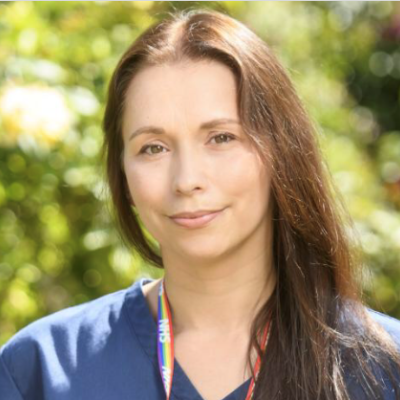About Us

Co-founders
Surviving in Scrubs was started by two doctors on a mission to raise awareness about sexism and sexual assault in healthcare.
Volunteers
Our fantastic volunteers are vital in supporting the work of our campaign. We have a small but mighty team who represent a variety of healthcare professions and healthcare students, helping us with planning events, writing blogs, and social media.
Dr Ellen McIver
I am a salaried GP working in the Oxfordshire area. I became aware of the amazing work that Surviving in Scrubs are doing through research I conducted as part of my medical humanities masters degree. Working as a junior doctor in the NHS, I have been exposed to and witnessed widespread sexism, misogyny and instances of sexual harassment through a multitude of platforms. I am hoping to raise awareness of the issues that still remain in the NHS and to give a voice to the victims of discrimination and assault is long overdue, and I am thankful to be a part of the process.
Dr Kavir Matharu
Kavir is a GP Registrar and current National Medical Director’s Clinical Fellow at NHS England. She is passionate about eradicating sexism and sexual misconduct in healthcare, having been a victim of and witness to multiple incidences of sexism and misogyny throughout her undergraduate and postgraduate training. She advocates for colleague wellbeing by increasing awareness of safe and supportive channels to raise concerns and hopes that by sharing her own experiences, she can empower others to speak up too.
Dr Kate Gibbons
Kate is a foundation doctor working in Manchester. Her first-hand experiences with gender biases, sexism, and harassment during medical school and at work prompted her to work towards tackling sexism and mysogyny in the medical profession.
She has been working in collaboration with Manchester medical school to produce bystander training and to raise awareness among students and help them develop tools to combat sexism when they experience it personally or witness others experiencing it.
Anya Soin
Anya is a 4th year medical student at the University of Nottingham. Her own experiences with sexual assault and sexism have led her to holding the role of President of the University of Nottingham Students Against Sexual violence and Sexism group, through which she has organised and led multiple events and workshops on topics such as consent, misconceptions around sexual assault and how to support a friend.
She was also part of a successful student campaign for mandatory consent training to be implemented at the University of Nottingham, and is passionate about sharing her own story to raise awareness and give a voice to survivors.
She became aware of the important work of Surviving in Scrubs after a meeting with policy advisors at the BMA regarding their Ending Sexism in Medicine pledge and has been a volunteer ever since, with a specific interest in working to improve provision of education on topics such as misogyny, sexual harassment and sexual assault at medical schools.

